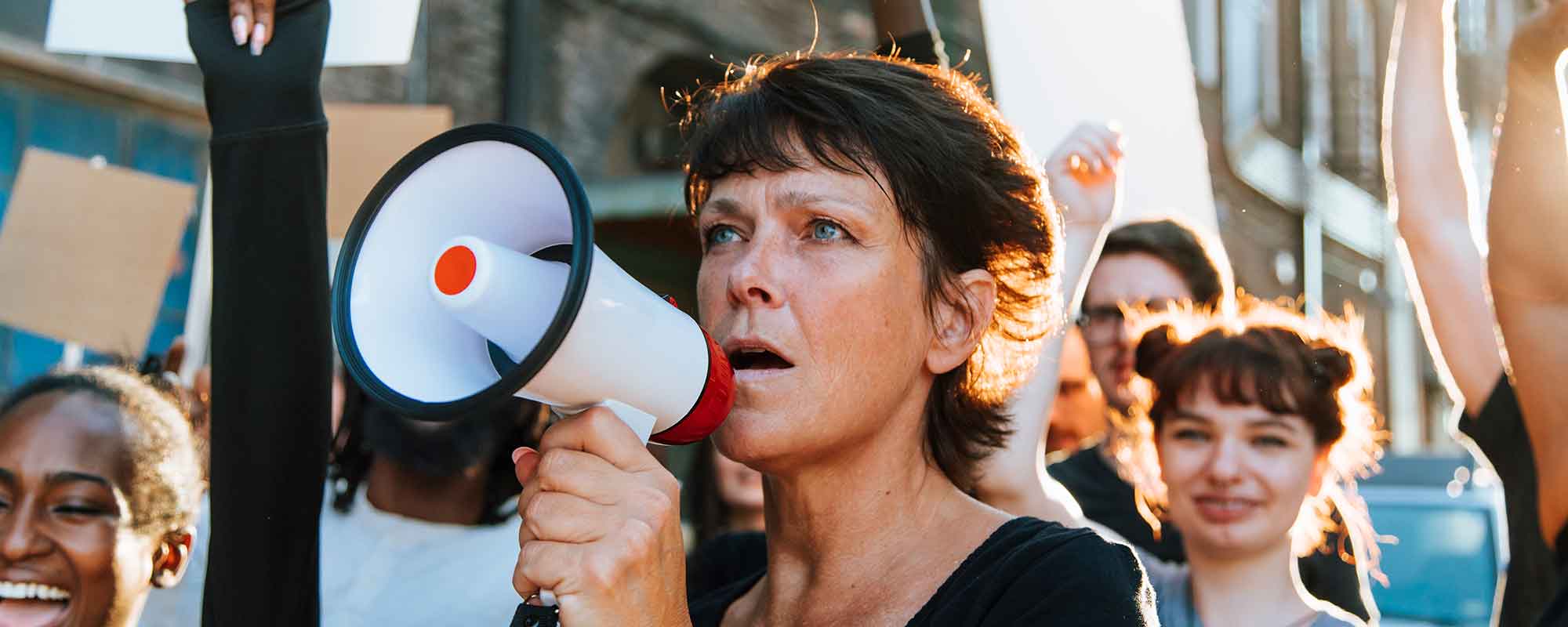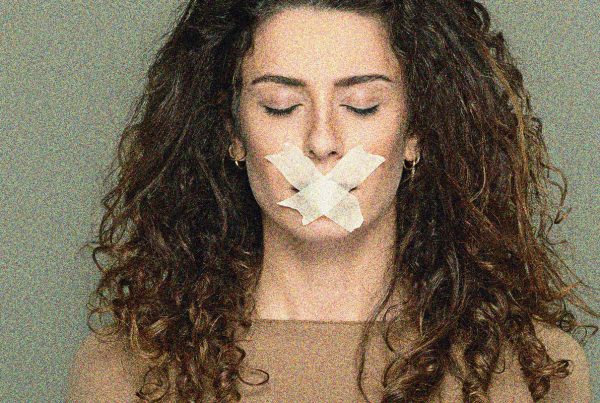A CCLA Essay by Cara Zwibel, Director of Fundamental Freedoms and Brenda McPhail, Director of the Privacy, Technology and Surveillance Program. Find out more about Cara or Brenda.
Working for an organization that is dedicated to human rights and civil liberties has been challenging during the pandemic, and not only, or even mostly, because we are seeing laws and restrictions on our activities that were previously hard to imagine. It is difficult because people have certain preconceived and often inaccurate ideas about what a dedication to civil liberties must mean. Some understand “civil liberties” as a focus on the individual, at the expense of the collective. Linked to this is the notion that government should be as “hands off” as possible, so that individual liberty may flourish. This is certainly one conception of what it means to be a civil libertarian. But the CCLA has never taken the position that individual freedoms trump all, or that all government intervention is unwarranted or unwelcome. We believe not only in liberty but also in substantive equality – and we have always recognized that while sometimes governments are the main barrier to its achievement, it is also the case that governments sometimes need to step in to help to achieve It.
Throughout the pandemic we have tried to urge governments to think seriously about how to appropriately balance competing rights and interests – and we’ve encouraged the public to think critically about these issues too. We are concerned about more than the immediate impacts of the latest public health order – our concern is also about what the accumulation of laws and regulations brought in under exceptional circumstances will mean in the long term, for everyone, including (especially) those who frequently live on the margins of our society.
From our perspective as people who cares about civil liberties, one of the most surprising and troubling developments during the pandemic is how reliant we seem to have become on legal rules and orders. Don’t misunderstand – laws are important and the rule of law is a pillar of a functioning democratic society. But during the pandemic our laws and regulations have reached into previously untouched areas of our lives. How many people can I invite to my wedding? There’s a rule for that. Can I eat at a restaurant with someone from another household? There’s a rule for that (and make sure to look at the latest version, it might have changed since the last time you checked). Last week when protests took place outside of hospitals the leader of the federal Liberal party promised to enact new criminal offences to prevent the harassment of health care workers if elected. Of course, such a law is completely unnecessary – we already have laws to address harassment and threats; the police don’t need a new law to ensure that entrances to hospital emergency rooms and ambulance bays are not blocked. But Trudeau honed in on the craving that many Canadians seem to have for more laws and rules, which many have come to believe are necessary to keep us safe and healthy.
Not only have we embraced a plethora of rules and regulations, but we are beginning to see another disturbing trend. Those who question rules made in the name of public safety run the risk of being mocked or denigrated, lumped in with the anti-vaxxers and conspiracy theorists. The new requirements for proof of vaccination in certain settings, quickly becoming common across Canada, are a good example. There are important questions to ask about these initiatives, including: how long will this be in place? How will governments decide we don’t need it anymore? How is this impacting the communities who we know have been disproportionately impacted by this pandemic, including the disabled, the racialized, the poor? Is there a risk that it will entrench some in vaccine hesitant views, and if so, how do we mitigate that risk? We believe those questions need to be asked, and answered. Stifling debate, by painting those who question restrictions as selfish and dangerous does nothing good for us now and harms the long-term health of our democracy.
We worry that our over-reliance on the law, particularly when combined with a disinclination to question it, is a liability that will have long-term effects. We seem to no longer trust that most people will make good choices if they have good information and many of our governments seem to believe that every aspect of our lives needs to be regulated…at least until the pandemic is over, whenever that may be. This was the case when there was no vaccine and our knowledge of the virus was in its infancy, and it seems to remain the case now, even though Canada has among the highest vaccination rates in the world.
We probably shouldn’t be surprised that after 18 months of pandemic restrictions, some of us are a little on edge. We are frustrated, angry, depressed and anxious. While in the early days we were “all in this together”, the general public mood seems to be that those who choose not to be vaccinated are being selfish and putting all of us in danger, and that those who question public health policies and directives are feeding vaccine hesitancy. There is no benefit of the doubt given to anyone – we need to prove a negative test, we need to prove our vaccination status, we need to prove a medical exemption to forego the vaccination requirement. Right now, we seem more afraid of each other than of state over-reach, but we are relying on a protective blanket of restrictions that may well, when times get better, become smothering. We should never, in a democracy, stop asking questions of our political leaders or placing their dictates under scrutiny. The law can be a powerful tool, but it shouldn’t be the only one we pull out when things need fixing.
About the Canadian Civil Liberties Association
The CCLA is an independent, non-profit organization with supporters from across the country. Founded in 1964, the CCLA is a national human rights organization committed to defending the rights, dignity, safety, and freedoms of all people in Canada.
For the Media
For further comments, please contact us at media@ccla.org.





